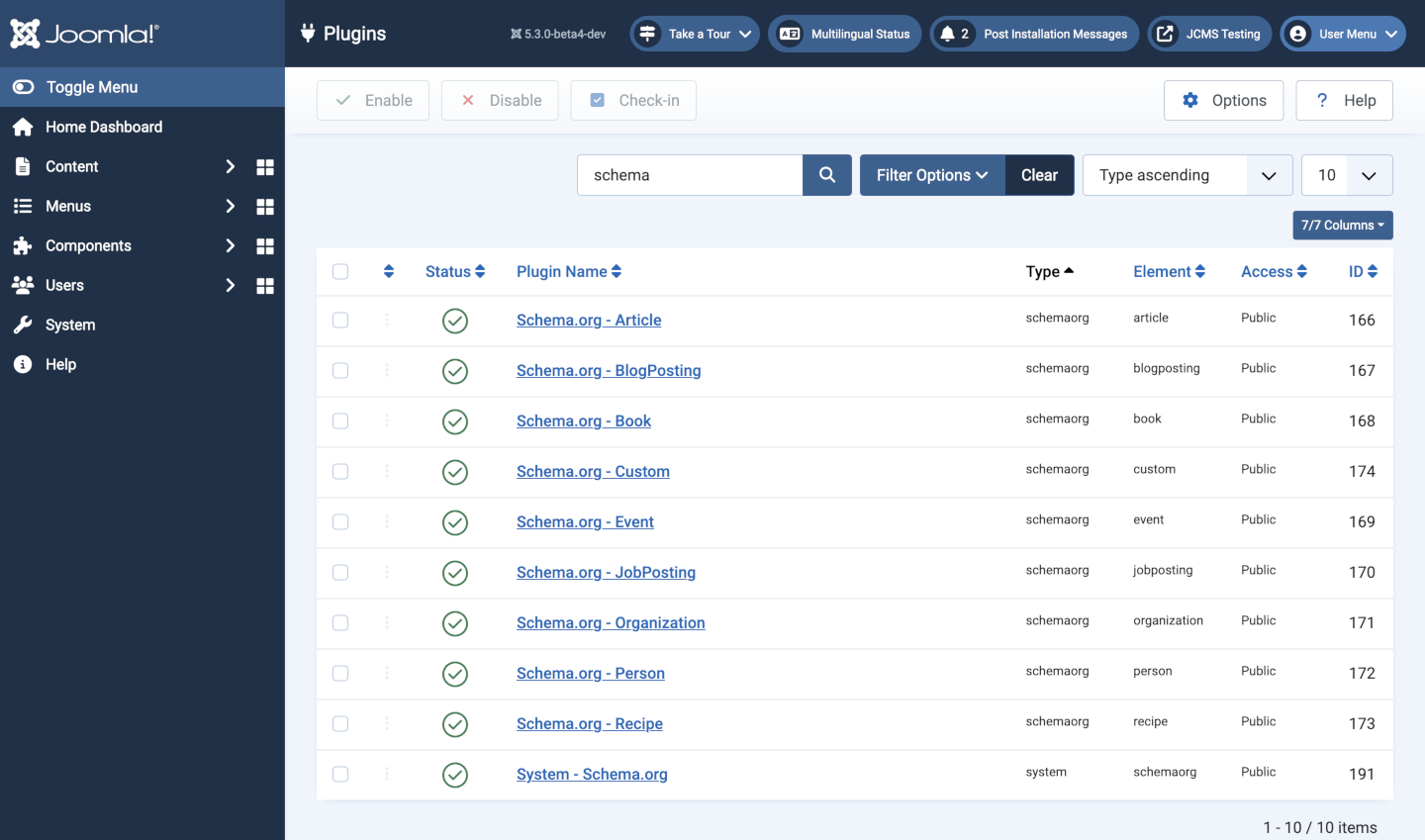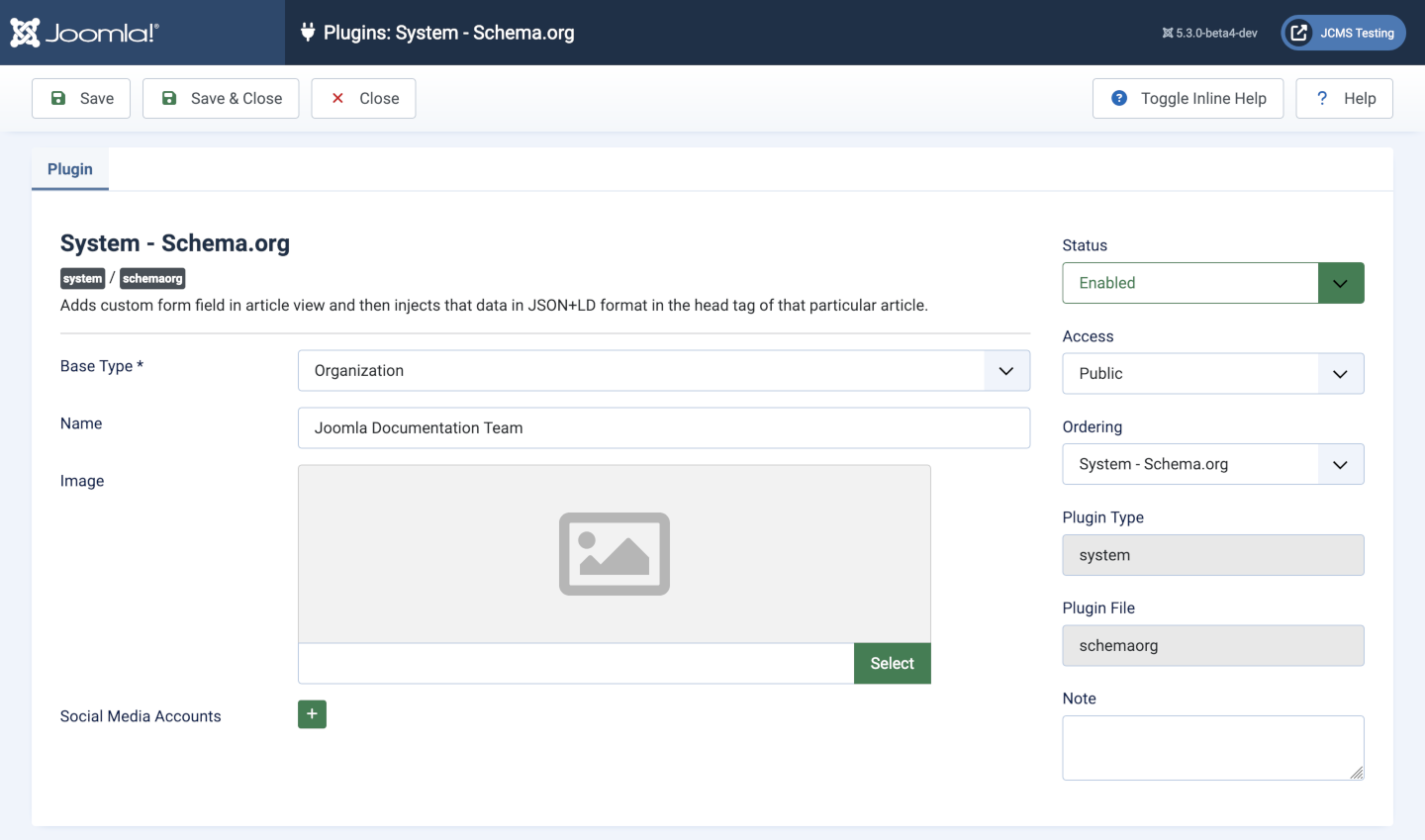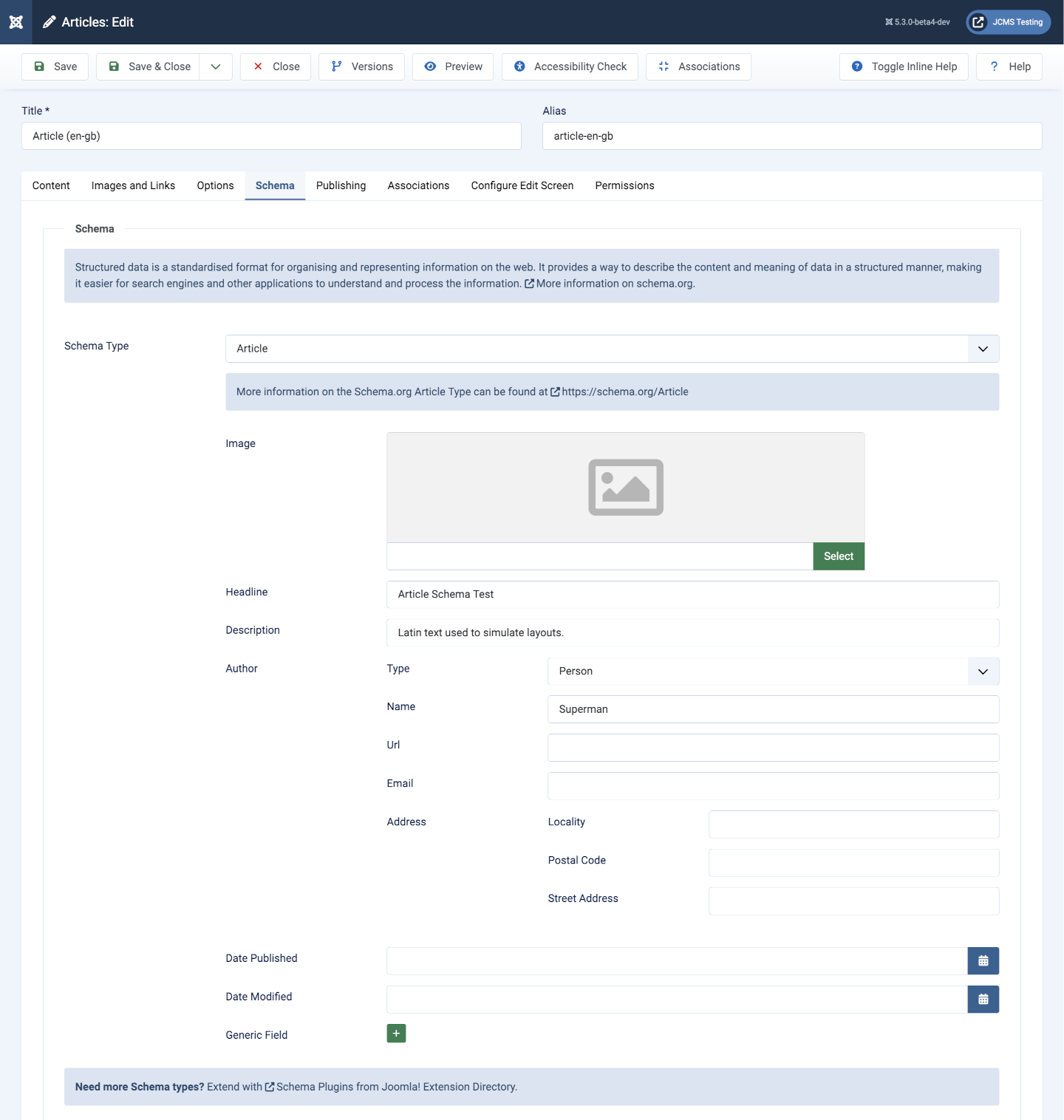Joomla User Manual
Manual Index
Introduction to Schemas
Rich Snippets
Rich snippets (also known as rich results) are normal Google search results with additional data displayed. This extra data is usually compiled from structured data found in a page's HTML. Common rich snippet types include reviews, recipes, and events. Rich snippets can help websites stand out in search results, attract more clicks, and provide users with a better understanding of the content before they click through.
Joomla implements Rich Snippets using JSON-LD. This is a JavaScript notation embedded in a <script> tag in the <head> element of an HTML page. The markup is not interleaved with the user-visible text. The content of the snippets are entered in form fields implemented with plugins.
Schema.org
Schema.org is a collaborative, community activity with a mission to create, maintain, and promote schemas for structured data on the Internet, on web pages, in email messages, and beyond.
Structured data is a standardised format for organising and representing information on the web. It provides a way to describe the content and meaning of data in a structured manner, making it easier for search engines and other applications to understand and process the information. There is more detailed information on the Schema.org website.
Joomla Implementation
In Joomla, Rich Snippets are generated using structured data markup based on the Schema.org schemas. Each schema type is implemented as a separate plugin. This allows for a more modular and extensible architecture. Each plugin is responsible for generating the schema markup for a specific type of content, which allows for more flexibility and customisation options. This makes it easier for third-party developers to contribute to the development of Joomla's structured data capabilities.
To get started, go to System -> Plugins and enable the System - Schema.org plugin. If this plugin is not enabled there will be no Schema tab in an article edit form even if all of the individual plugins are enabled.

Edit System - Schema.org Plugin
- Base Type Choose whether your website represents an organization or a single person.
- Name Enter the name of the organization or person the website represents.
- Image Add your company or personal image
- Social Media Accounts Add your company or personal social media accounts. Select the Green button plus sign to add rows to the form.
- Select Save & Close.

Edit an Article
Go to any of your articles and fill in the Schema form fields. If the Schema Type is set to None, the default, there are no fields to complete. Select any Schema to see a list of fields appropriate for that schema. The following screenshot shows an article with the Article schema selected:

Output
You will not see anything related to the schema in the web page. However, if you look at the page source you will see a script entry, as in the following example:
<script type="application/ld+json">{
"@context": "https://schema.org",
"@graph": [
{
"@type": "Organization",
"@id": "http://localhost/jcms-testing/#/schema/Organization/base",
"name": "Joomla Documentation Team",
"url": "http://localhost/jcms-testing/"
},
{
"@type": "WebSite",
"@id": "http://localhost/jcms-testing/#/schema/WebSite/base",
"url": "http://localhost/jcms-testing/",
"name": "JCMS Testing",
"publisher": {
"@id": "http://localhost/jcms-testing/#/schema/Organization/base"
}
},
{
"@type": "WebPage",
"@id": "http://localhost/jcms-testing/#/schema/WebPage/base",
"url": "http://localhost/jcms-testing/index.php/en/article-en-gb",
"name": "Article (en-gb)",
"isPartOf": {
"@id": "http://localhost/jcms-testing/#/schema/WebSite/base"
},
"about": {
"@id": "http://localhost/jcms-testing/#/schema/Organization/base"
},
"inLanguage": "en-GB",
"breadcrumb": {
"@id": "http://localhost/jcms-testing/#/schema/BreadcrumbList/139"
}
},
{
"@type": "Article",
"headline": "Article Schema Test",
"description": "Latin text used to simulate layouts.",
"author": {
"@type": "person",
"name": "Superman"
},
"@id": "http://localhost/jcms-testing/#/schema/com_content/article/1",
"isPartOf": {
"@id": "http://localhost/jcms-testing/#/schema/WebPage/base"
}
}
]
}</script>
You can test your structured data via the Google Test your structured data page.
Available plugins
| Plugin | Description |
|---|---|
| Article Plugin | The starting point for using schema.org |
| Blogposting Plugin | For Blog Post content |
| Book Plugin | For Book content |
| Custom Plugin | For direct entry of JSON-LD code |
| Event Plugin | For Event content |
| JobPosting Plugin | For Job Posting content |
| Organization Plugin | For Company and Organization content |
| Person Plugin | For Person content |
| Recipe Plugin | For Recipe content |